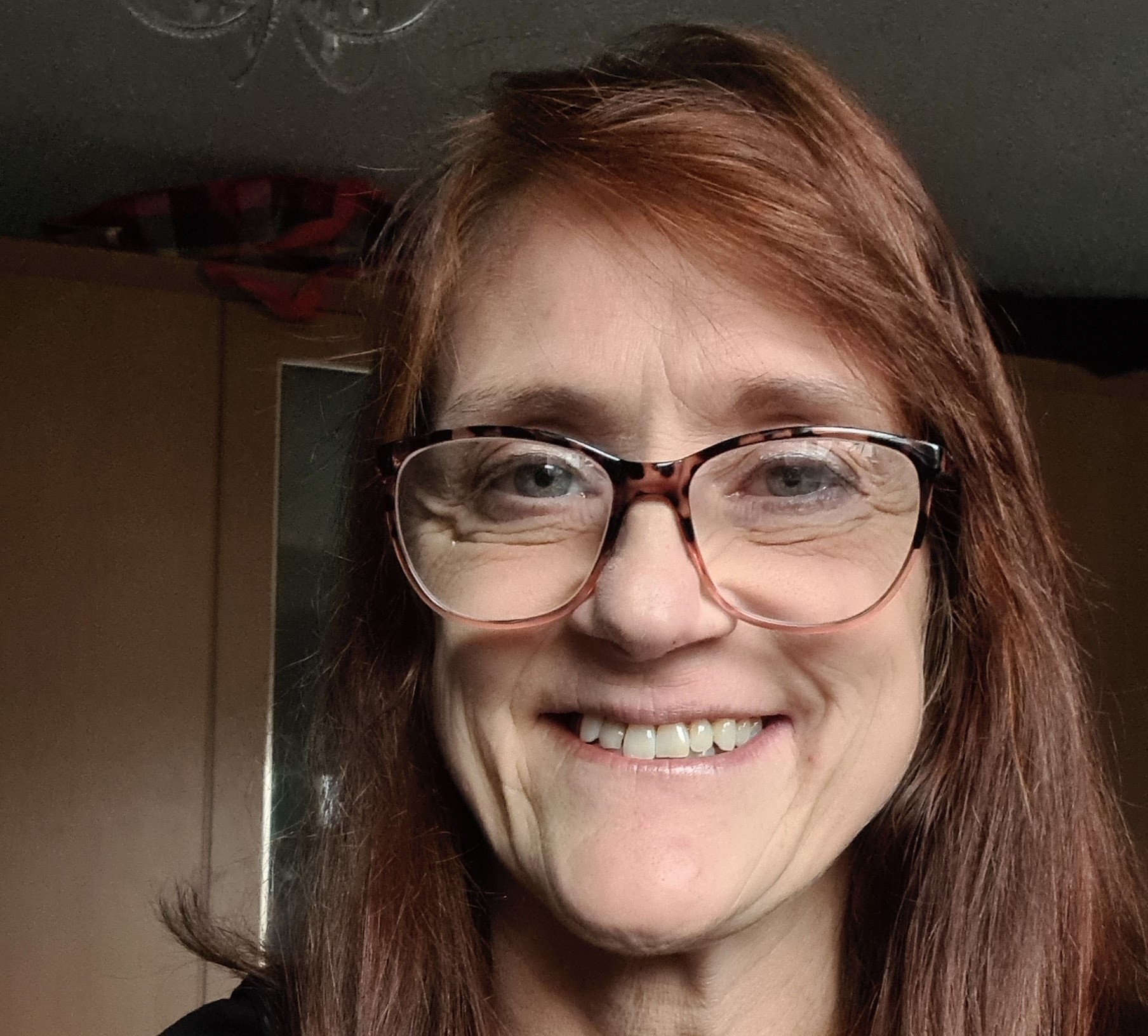People can finally see the real me! Izabelle shares her eczema story and the transformational effects of one of the new JAK inhibitor treatments. Her story was first published in the Autumn/Winter 2024 edition of the National Eczema Society’s member magazine, Exchange.
Everyone always describes me as an ‘itchy child’. I don’t remember having eczema when I was really little, but I’m told I was officially diagnosed at three years old. I do clearly recall being my aunt’s bridesmaid when I was five, though, and wearing a pale blue dress and people commenting that I clawed at my skin ‘all day long’.
Facing the world
One of the worst aspects of living with eczema is how other people respond to it. Even well-meaning comments, such as ‘Don’t scratch!’, ‘Have you tried…?’ or ‘I know how you feel – I had a small patch of eczema once’ cause so much additional anguish.
Unless you’ve experienced the all-encompassing nature of severe eczema, you can never understand how it feels to be so itchy that you can’t think of anything else… for it to be so bad that you literally shake and sweat… the extreme restraint it takes not to scratch, and how you’re wracked with guilt when the urge finally becomes too much and you rip holes in your skin until the blood pours out.
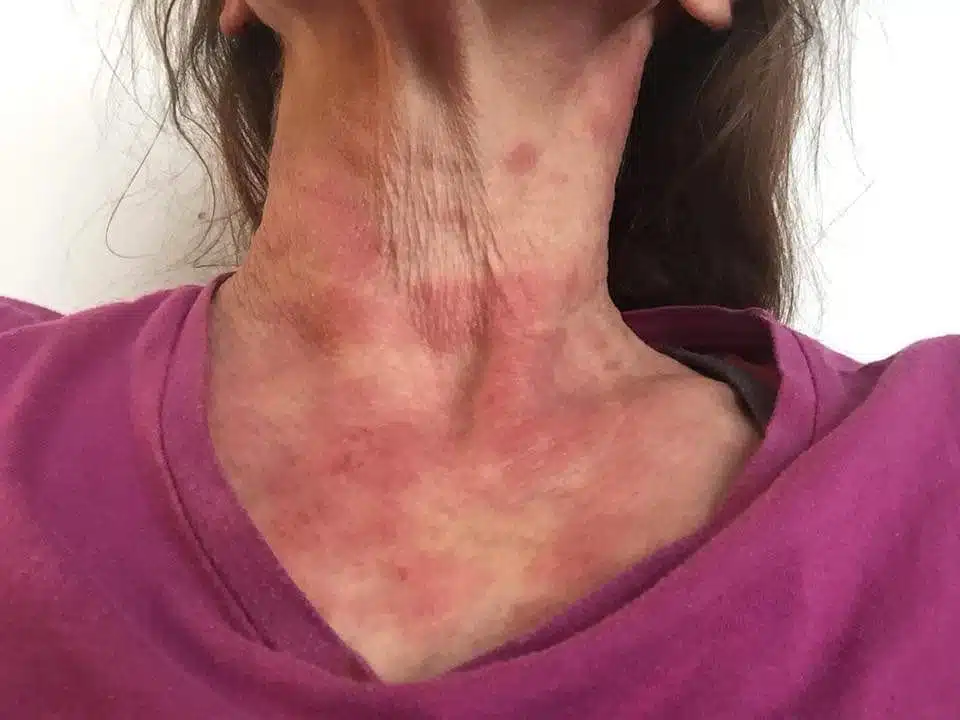
My parents always treated my eczema as just another part of ‘me’, so as a young child I wasn’t particularly conscious of it. It was only when I went to school and the other children made it very clear that I was different – by not wanting to hold my inflamed, cracked and scabby hands, rejecting me when picking teams and through cries of ‘Urgh!’ and ‘Ew!’ – that I found it really upsetting.
Luckily, I was quite feisty and had close friends who weren’t bothered by my skin at all. But those reactions stay with you.
Cutting comments
Kids can be cruel, but adults can be just as cutting. When I left college, I went to work on a supermarket delicatessen counter and a customer complained to the manager about my skin, even though I was wearing gloves.
The manager came storming over and demanded everyone on the counter show her their hands. When she saw mine, she told me I couldn’t be around food and sent me to stack shelves. I felt so humiliated.
I’ve been fortunate. I’ve mostly had really understanding managers and colleagues. But they don’t always get it right.
The other year, I came out in a bright red rash all over my face and neck. I work as a receptionist now, and they sent me home until it settled down, saying ‘You can’t possibly greet people looking like that!’ They were genuinely concerned for my health, as it looked like a really bad burn – but the words came out badly, and it hurt.
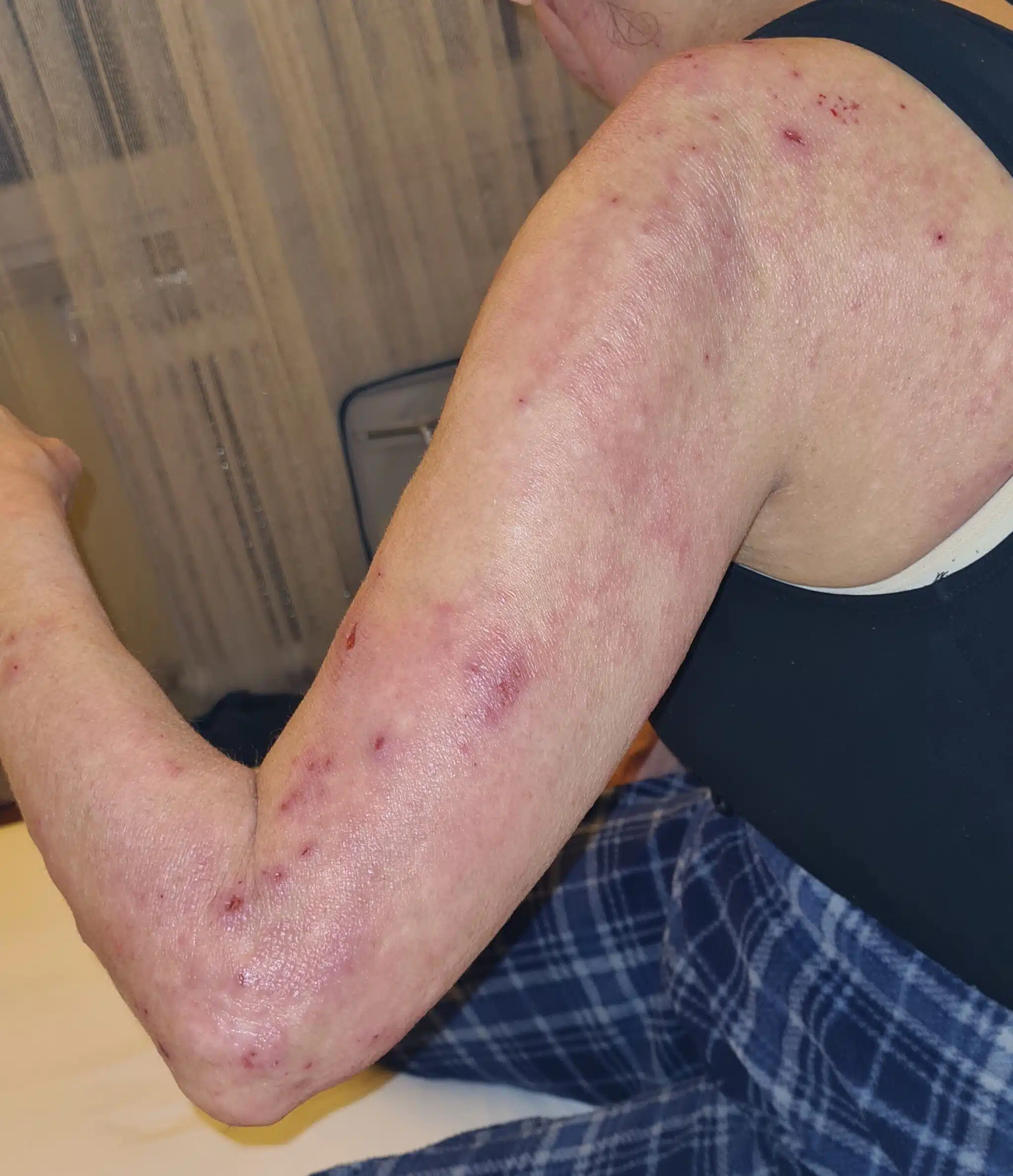
What haven’t I tried?
The trial-and-error process of finding a treatment regime that works is so draining. When yet another medication fails to get the eczema under control, you have to manage your disappointment but also the immense frustration at still not having found the solution.
This was compounded when I was younger because everyone told me I’d grow out of eczema and that it was a ‘childhood condition’. They even mentioned a seven-year cycle. So, on my seventh birthday, I was convinced it would go, and then again on my fourteenth. I really wish they hadn’t raised my hopes.
Dermatologists tried everything over the years, including topical steroids and systemic treatments, three-week stays in hospital where they wrapped me up like an Egyptian mummy in creams and bandages, azathioprine, methotrexate, cyclosporin, prednisolone, mycophenolate mofetil, patch and skin-prick testing and PUVA light treatment.
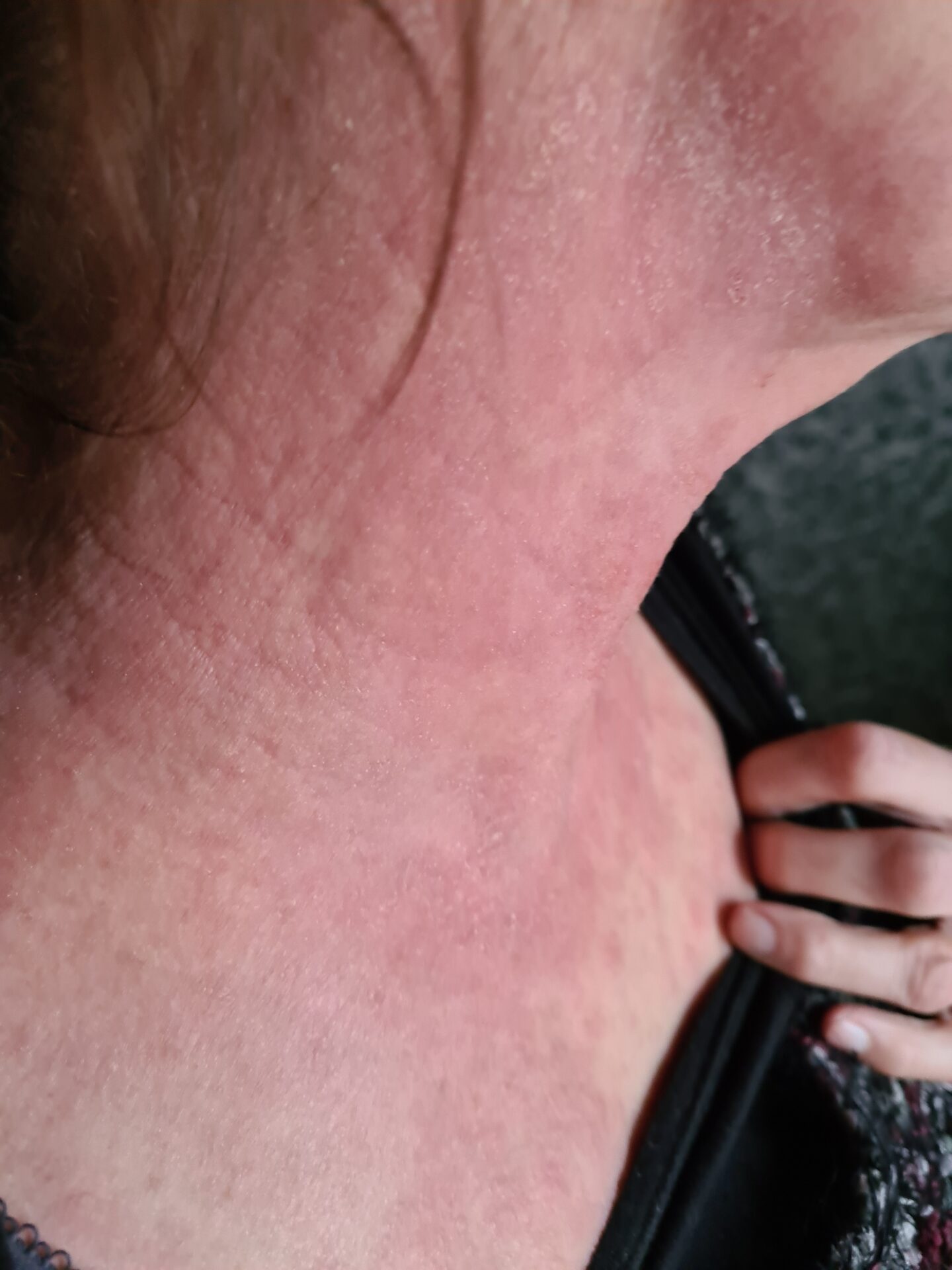
I must have spent thousands of pounds on creams – because they worked for someone else with eczema and therefore ‘might’ work for me – and on acupuncture, reiki, reflexology, faith healing, Chinese medicine and homeopathy.
After ten £50 sessions, the homeopath told me that if I didn’t stop doing whatever it was that was causing my eczema to flare – although she didn’t know what that was – I’d be dead within two years!
A brief reprieve
Respite for me came at the age of 37 when I gave birth to my first child, with twins following soon after. For the following 13 heavenly years the redness and itching faded away and I could manage the remaining dryness with emollient.
Everything changed, though, as soon as I entered the menopause. Because pregnancy had been the turning point for my skin, I was convinced that hormones could be the key to getting my eczema back under control. So I tried HRT, which helped with the dry skin, but didn’t touch the inflammation and itching.

Then, earlier this year, I had the worst flare-up I’ve had since my eczema regained its momentum. I was on a skiing holiday – my great passion – and ended up looking like a tomato with white bits.
I’d spend the days on the slopes completely covered up in all my ski wear and then in the evening I’d stay in my room waiting for the last possible meal slot so I could slink down to the restaurant when it was empty and avoid the stares.
At bedtime, I’d crawl into the fleece sleeping bag I’d brought from home to prevent the blood from my broken skin ruining the hotel’s pristine white sheets.
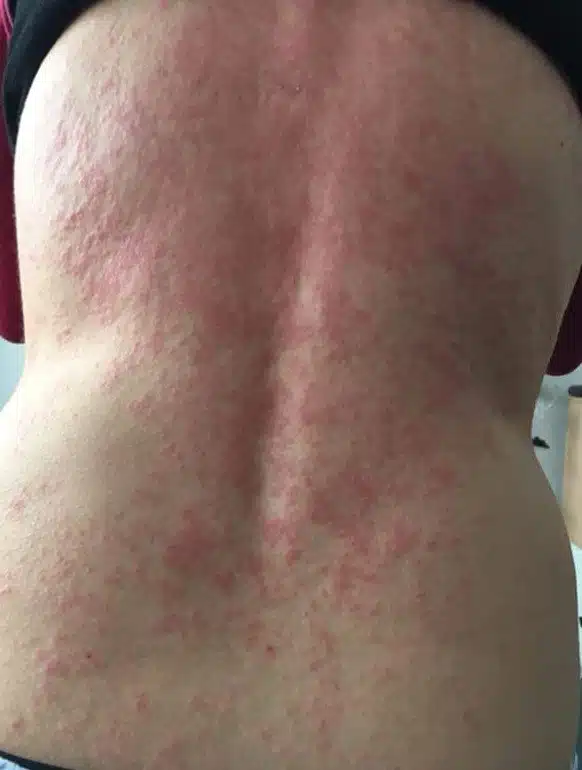
By the time I got home, I was on my knees. I’m normally a cheerful person – even when life throws me curve balls – but this was another level. I didn’t feel I could go out in public. I desperately needed something to change.
A welcome sea-change
Fortunately, I’d been on the waiting list with my dermatologist to try one of the new JAK inhibitor treatments – abrocitinib – and my return from holiday coincided with the chance to try it, taking a single daily tablet.
It is the most amazing treatment that I’ve ever tried. After just two days, the itch had gone. After three days, so had the redness. Ten days later, the flaking had too.
My eczema has completely disappeared and my skin is even better than it was after I had the children. The only minor side-effect has been a few cold sores around my nose, but I’m more than happy to put up with that in return for the transformational effect this medication has had on my life. I feel alive!
I can look people in the face when I’m talking to them, rather than looking at the floor. I can wear whatever I want without worrying about it showing up flakes, grease or blood. My eczema no longer determines how I style my hair. I can also, finally, go into the changing rooms in shops and not be conscious of how I look or of damaging the clothes that I try on.
It’s only when eczema finally releases its grasp on you that you realise just how life-limiting it has been.
The real me
At its worst, my eczema was all I could think about. It consumed me. I felt disgusting and had no confidence. People would stare intently at me and I’d want to run away and crawl under a stone.
Now, people can finally see the real me. My friends say I look ten years younger, as I’m no longer red, puffy, dry and wrinkly. Some think I look so good, they’ve even accused me of having a facelift or Botox! I’ve never looked or felt so healthy, and I’m so much happier as a result.
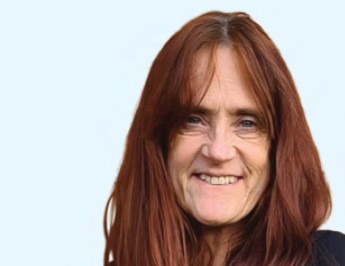
This particular treatment may work for you too, but it may not. Eczema is a highly individual condition and everyone can respond differently to medicines. But the many newer treatments we have now offer fresh hope – especially if, like me, you’re a long-term sufferer who feels they’ve exhausted every possible avenue.
And hope, when you’re living with eczema, is priceless.

